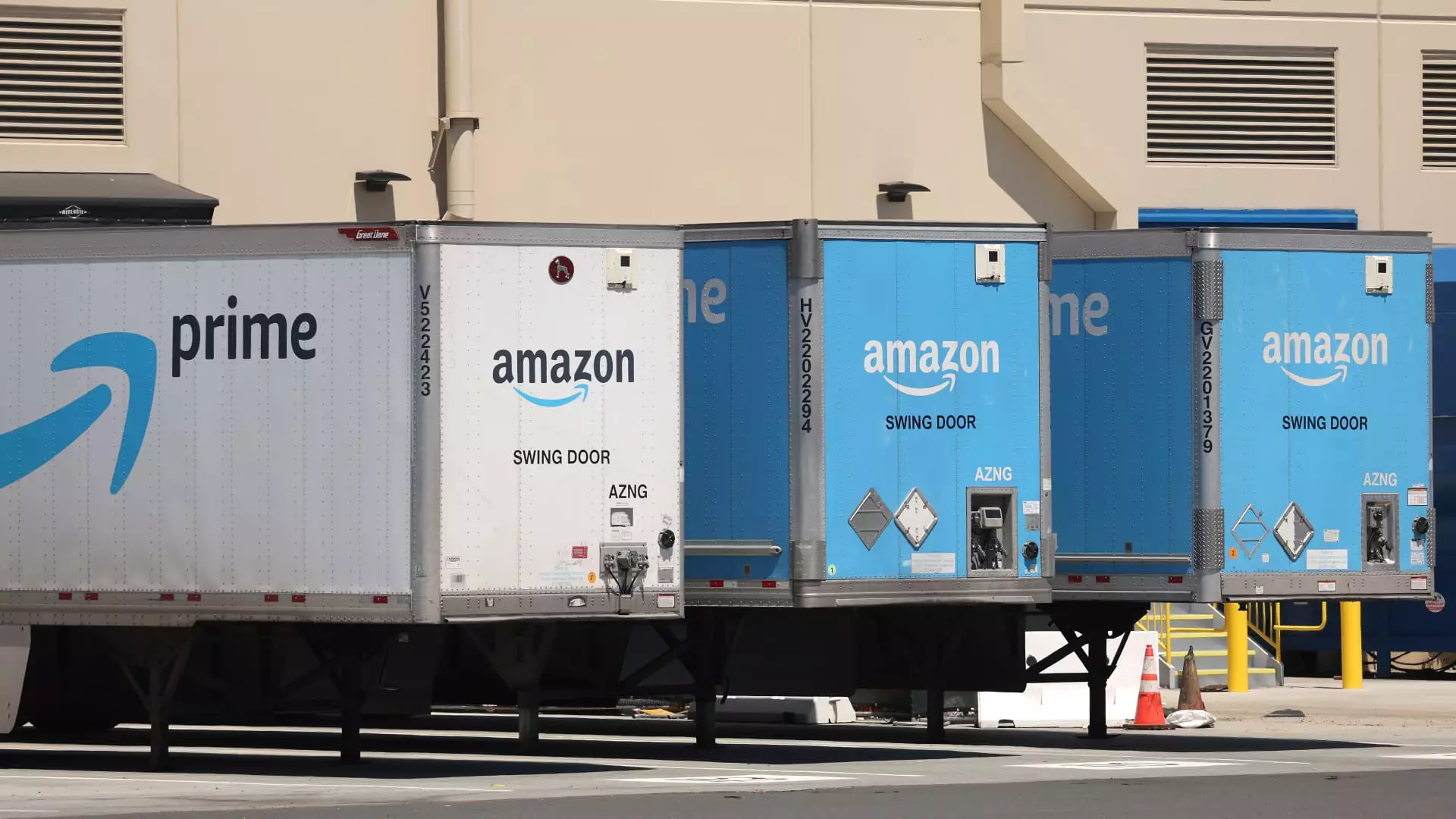In a shocking turn of events, the Department of Justice (DOJ) has unveiled a web of deceit and crime involving an Armenian organized crime ring that has allegedly pilfered over $83 million worth of goods from Amazon. This case isn’t just another incident of cargo theft; it highlights a growing epidemic that threatens not only large corporations but also the very fabric of trust within the online retail environment. This troubling narrative spotlights just how far some are willing to go in a world that promises endless convenience at the cost of security.
Within the last couple of years, California has turned into a battleground of sorts, where innocent products are being wrested away from their rightful destinations by those masquerading as genuine truck drivers. These culprits, armed with fake identities and a blatant disregard for the law, went to great lengths to create a façade that would convince even the most discerning of logistics teams. From smart TVs to kitchen appliances, their haul is evidence of an audacious plan to siphon off goods meant for consumers.
The Chilling Implications for Amazon and E-commerce
Amazon, a monolith in the e-commerce sector, is reeling from a wave of cargo theft that has left its operations vulnerable. The complaint from the DOJ outlines how these fraudsters manipulated the logistics mechanism through Amazon Relay, an app designed to streamline the trucking industry. By exploiting this technology, they diverted cargo intended for the company’s warehouses, ultimately making their thefts seem like just another routine delivery. With a staggering number of estimated theft-related losses reported to be hovering around $1 billion annually, the implications are profound. A significant portion of the operational costs for many retailers now seems to be tied up in losses from theft rather than the cost of goods.
It’s terrifying to think that the masks worn by these criminals could be those of everyday drivers you would likely never suspect. As Amazon ramped up efforts to clamp down on fraudulent activities within its sprawling marketplace, it unveiled an inconvenient truth: the line between legitimate commerce and deceit is strikingly thin. While Amazon’s vigilance is commendable, the company faces the daunting challenge of eliminating stolen goods from its platform, a task that threatens to compromise the livelihoods of unsuspecting third-party sellers caught in the crossfire.
More Than Just Cargo Theft: A Criminal Network
The DOJ’s investigation revealed that these criminals weren’t merely opportunistic thieves – they were part of a larger organized crime network. With links to more heinous activities such as attempted murder and illegal firearm possession, this attempt at theft unveils deeper layers of a perilous underbelly within our society. It begs the question: to what extent is this crime syndicate willing to go? The revelation that the accused masterminds operated several transport carriers to execute this illicit scheme is alarming.
The audacity of these individuals is betrayed by the sheer volume of goods they accumulated, as evidenced by seized iPhones containing incriminating images of warehouses crammed with stolen merchandise. Each new detail sheds light not just on the theft, but on a culture that dismisses ethical boundaries in pursuit of profit.
The Bigger Picture: Societal Consequences
As the trials for the 13 defendants approach, the court proceedings promise to unearth more than just the individuals involved; they signal a societal reckoning about the systems that facilitate such crimes. Currency is no longer merely physical bills; it embodies trust, security, and the sanctity of trade. Immoral shortcuts proliferate in today’s fast-paced world, a reflection of both greed and desperation.
This incident is a reminder that the economy is a living organism, susceptible to the diseases of corruption and organized crime. It raises broader questions about accountability within the logistics and retail sectors, prompting both consumers and companies to consider what safeguards they currently rely upon. Can we truly depend on a system designed for market efficiency, one that can be exploited so easily?
The DOJ announcement serves as a stark awakening—reminding us that in our pursuit of convenience, we risk fostering an environment where crime can flourish. The challenges posed by these systemic vulnerabilities merit not just attention but a reevaluation of the safeguards that protect our society from falling prey to the shadows of organized crime that loom larger every day.

